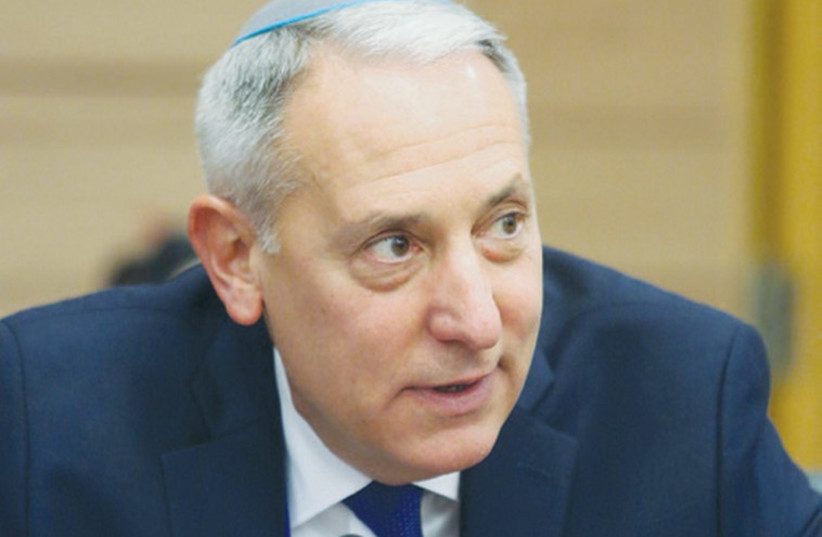Last week, the Jewish Federations of North America’s (JFNA) Israel Educational Travel Alliance (IETA) ran its first summit in Israel, with 25 CEOs and senior executives of educational travel organizations.
The diverse group included representation from dozens of organizations, from Birthright-Israel to Chabad on Campus International to the Christian Passages organization. The group met with MKs and senior leadership at the Foreign Affairs Ministry.
“The forum was created during the pandemic because there are over 100 organizations bringing educational travel to Israel from North America, and during the pandemic all of them were experiencing existential issues in their organizations,” President and CEO of JFNA Eric Fingerhut said.
“We discussed what should be done and what should not be done. We spoke of what precautions to take and we also had very meaningful discussions with senior officials of the government,” Fingerhut said.
He explained that during the pandemic, “It made sense for us, as Jewish American organizations, to work together [with Israel]. What we learned was how much the field of educational travel has grown to become one of the cornerstones of Jewish identity building in North America.”

Of the 100 organizations conducting educational travel to Israel from North America, 35 were represented at the conference. “The goal was to put together the alliance, to begin working together closely and develop a common agenda,” he explained.
They met with Diaspora Affairs and Combatting Antisemitism Minister Amichai Chikli, Knesset Speaker Amir Ohana, representatives from the Tourism and Foreign ministries and other leaders of the tourism industry.
The discussions focused on issues like the rising costs of hotel rooms in Israel, security, costs and – of course – the education that is implemented on these tours.
Fingerhut shared that a hot topic was the suggestion that has been discussed by the government to cancel the VAT exemption for incoming tourists.
The alliance members met with MKs from across the political spectrum, emphasizing to them that this would cause a significant rise in costs for the programs.
How has the coalition professionalized their work?
Liz Sokolosky, executive director at Birthright-Israel North America, said the alliance has “professionalized our work as a coalition. We have a full-time director, co-chairs and a steering committee. We developed a mission statement, goals and strategy. We believe there are many opportunities for collaboration, learning, and ways to raise awareness in the field of Israel educational travel both in North America, globally and in Israel.”
Michael D. Wise, Co-CEO Honeymoon Israel Foundation, said that “with Honeymoon Israel trips leaving for Israel in late March 2020, I was deeply concerned about making a decision to cancel [due to COVID-19] and wanted to talk to colleagues in the field as well as our funders about canceling travel.”
Wise added that this “brought many in the Israel educational tourism sector together along with our funders, to work focused on the immediate crisis. We continued to meet at least weekly and brought in other organizations during the following few months including Birthright and others.
“Prior to COVID, there was little cross-communication other than through professional friendships we might have had or through other meetings convened for those of us working in the field of Jewish engagement,” Wise said of the need for the alliance.
“As a coalition we have created a field of practice as professionals. We can focus on looking forward to how we work with the government of Israel, advocating a policy to support travel, funding training across the field and building up the infrastructure needed to insure our success.”
Wise joined Fingerhut’s concerns regarding the proposed elimination of the VAT exemption, “which will result in a 17% increase in costs for every traveler,” as well as the issue of Law of Return, “which impacts who goes on trips,” Wise said.
